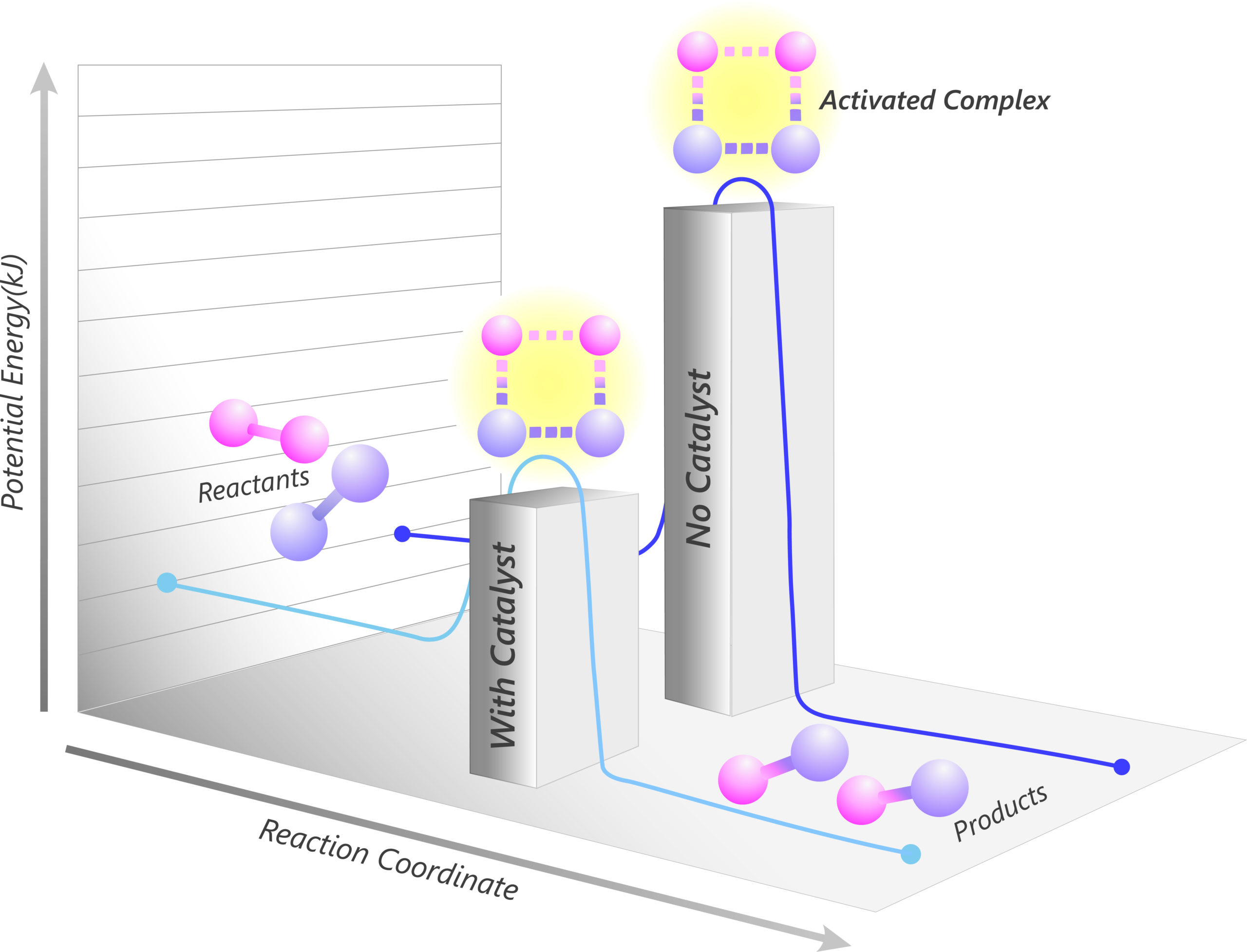Plasma catalysis is becoming an extremely popular and ever-expanding part of research and development into novel gas conversions such as the transition of methane (CH4) into oxygenates and carbon dioxide (CO2) into value-added chemicals.
What is Plasma Catalysis?
Experts in plasma catalysis will know that catalysis increases the rate of a chemical reaction by adding a substance called a catalyst. The catalyst is not consumed by the reaction however it means products are produced quickly and in more favorable conditions. The combination of a plasma discharge with substance with catalytic properties is known as plasma catalysis.
Plasma is often referred to as the fourth state of matter, as it is an ionized gas made up of various types of ions, electrons, excited atoms, radicals, and molecules, as well as neutral ground state molecules, making it an extremely reactive environment.
Despite the possibility for a number of plasmas to be used, non-thermal, atmospheric pressure plasmas and solid catalysts with gas phase reactions are the most commonly used.

Plasma catalysis is considered an emerging branch of plasma processing and reduces the overall levels of undesirable material that becomes waste mater if it is not treated. It is an extremely versatile method which offers a means of producing specialized materials in mild conditions and can also uncover new means of decentralizing the production of specialty chemicals by pairing the technology with renewable electricity sources.
Plasma catalysis of CO2 converts it into cleaner, more environmentally friendly and beneficial elements creating a sustainable solution for industries around the world. The electrons in plasma can activate the CO2 molecules, resulting in additional products without needing heat the entire gas. As such, plasma technology can offer an energy-efficient technique for CO2 conversion.
Plasma catalysis is generating more interest for use in pollution control by minimizing volatile organic compounds in waste gas treatment. Plasma facilitates thermodynamically challenging reactions to continue at an ambient pressure and temperature as the gas molecules are activated using energetic electrons produced in the plasma.
Plasma Catalysis with Hiden Analytical
Hiden Analytical produces a broad range of mass and energy analyzers which can be used in non-thermal plasma experimentation, particularly in plasma catalysis. Plasma catalysis leads to enhanced gas conversion rates and reactions, the benefits of which reach into many industries.
Hiden Analytical assists professionals in every area of plasma research using a collection of specialized mass spectrometry systems which are well-suited to implementing plasma diagnostics and advanced catalyst characterizations.
If you would like to find out more about plasma catalysis solutions from Hiden Analytical, contact us today for more information.

